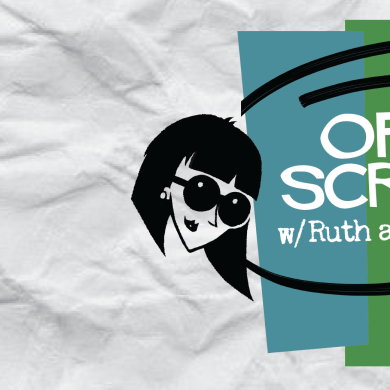UPDATE: On Thursday, July 10th at 7:30pm ET/PT, Showtime will premiere Kidnapped for Christ, which won the Special Jury Award at the 2014 Nashville Film Festival and the Audience Award for Best Documentary Feature at 2014 Slamdance Film Festival. Congratulations to Kidnapped for Christ filmmakers on their documentary’s upcoming cable and satellite television network premiere.
Directed by Kate Logan, Kidnapped for Christ is a an award-winning documentary that was screened as part of Slamdance On the Road at the IFC Theater in New York City on March 25. CreativeFuture has partnered with Slamdance On the Road as a Presenting Sponsor to showcase new and emerging artists, filmmakers, and storytellers at events across the country over the coming year.
CreativeFuture caught up with Logan at the screening to discuss the film and get her thoughts about various issues facing those in the creative field today.
CreativeFuture: Tell us about the film that brings you to Slamdance.
Kate Logan: Kidnapped for Christ is a feature-length documentary about parents who hire people to take their kids in the middle of the night to this reform school in the Dominican Republic which is run by Americans.
When I first discovered the school, I thought that it was an alternative to juvenile detention or being on the streets. I assumed it was for kids that were really on their last chance. I thought that it was a good, interesting alternative therapy program where they could learn about another culture. at the same time as finishing high school.
“Films don’t happen out of hopes and dreams. They happen because people invest in them. With their time, with their money with their passion.”
When I got down to the school in the Dominican Republic I realized what was really going on, which was that this was parents who were spending exorbitant amounts of money to have their kids shipped to this school for whatever reason they dreamed up. The school was very cult-like and abusive, and they used a lot of brainwashing techniques, and as I was down there filming, I slowly realized what was really going on. I just tried to film as much as I could.
CreativeFuture: In today’s digital environment, there are a lot ways for filmmakers to reach audiences, how do you go about promoting your work?
Kate Logan: It’s a lot of just hustling. It’s a lot of just putting the story out there to whoever you think will listen, and seeing what sticks. For me it’s not a well-oiled machine. It’s just trying to think of who wants to hear about this, who should hear about this, and then do whatever we can to get it to that audience.
Kidnapped For Christ Trailer from Kidnapped For Christ on Vimeo.
CreativeFuture: There are some who say that the way to reach audiences is to give your stuff away for free, how do you feel about that?
Kate Logan: On the one hand, in some ways it’s an effective way to reach it, because you’re removing most barriers for people to watch what you’ve created. On the other hand, without money there are a lot of limits to what you can create.
CreativeFuture: Have you ever found your work available for free online without your permission? How did you feel about that?
Kate Logan: Fortunately, I haven’t, but the people that are going to download or watch something for free are just undercutting quality content. Films don’t happen out of hopes and dreams. They happen because people invest in them. With their time, with their money with their passion. If people with creative visions are not compensated, then they can only ever kind of half-ass everything they do. That’s the reality.
CreativeFuture: What do you say to a young filmmaker who is just coming out about how they should distribute their work?
Kate Logan: I would tell anyone young to be very careful and guarded with it. You want to find the right distributor that’s going to treat your film in the way that you would want it to be treated. I would tell them not to give it out to just anyone. You should value your work.
CreativeFuture: Particularly for the future of independent film, can you talk a little bit about the importance of working together as a community on new distribution platforms that can ensure that filmmakers are rewarded for their work?
Kate Logan: It’s really important that the filmmaking community doesn’t totally go the way of music, where they kind of denied that people were going to download stuff online or were going to stream it, much to their great detriment. I think it’s important to acknowledge what the reality is, and what people are going to do, regardless of what you want them to do, and try to find the best way to make content as easy as possible to get. There has to be a compromise, realizing what is realistic for consumers, and what they are actually going to do and actually going to pay, and then deliver that to them in the most easy way possible, and then you can actually start to figure out how to monetize the content that you have.
—————————————————————————————————————————
A series of interviews with creative people about the creative process and the value of creativity.



